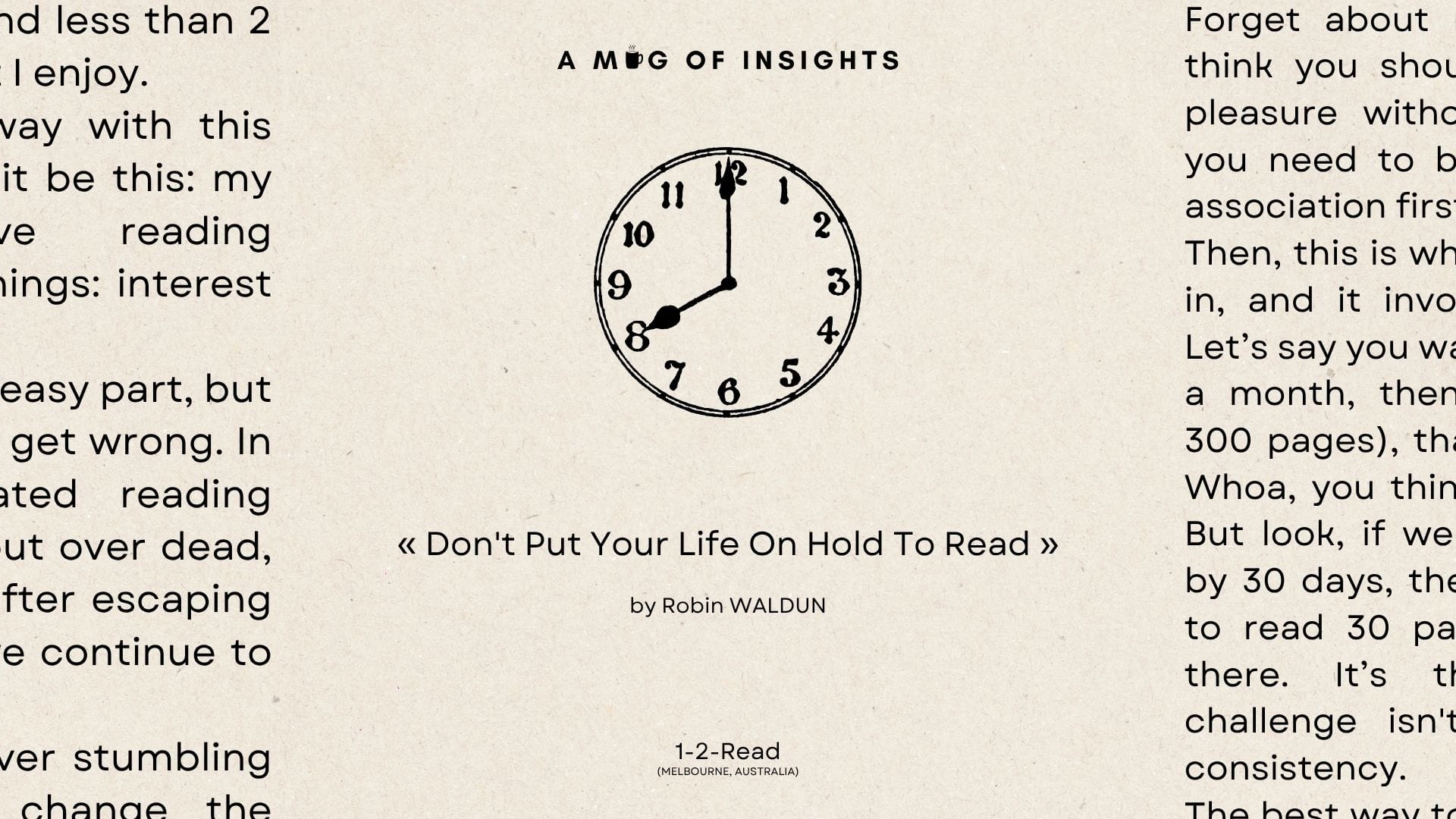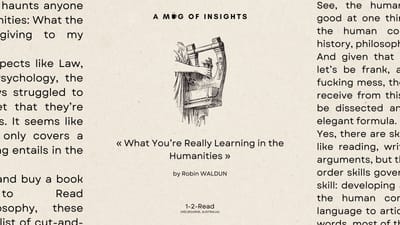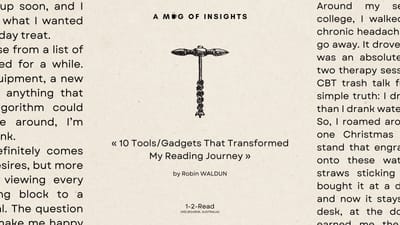The 2 Building Blocks of A Daily Reading Habit

A quick announcement
Amugofinsights.org is nearly six months old! So, to prepare for 2026, I got my minions together in a writer's room and we crunched a bunch of data. What did we find? Our 1-2-Read segments consistently outperformed the weekly columns (even when they're paid!), And I understand why.
Look, you're a busy guy/gal, and you want good advice that works. In this case, one idea and two thought-guiding prompts are way more effective than my weekly rambles. So, for the next month or so, I'll stop cramming your inbox with weekly columns and focus on targeted & succinct reading advice published twice a week on Saturdays (free) and Mondays (paid).
I'm very excited about this change, and I can't wait to send you more actionable ideas that'll transform your reading life. Enjoy this week's free 1-2-Read letter, and as always:
Take care, and see you soon!
Your Substitute English Teacher: Robin
(1) The Idea: Don't Put Your Life On Hold To Read
When I posted my podcast episode about how I read 6 books a month, someone left me a clever quip in the comments:
“How to read 6 books a month: by doing nothing but reading.”
I chuckled because this person landed on a core belief most aspiring bibliophiles share: if I want to read, I have to put everything in my life on hold and disappear into a cave. It’s funny because it’s not true.
Personally, I average 5 books a month, and no, I’m not a monk, and I do go outside. Alongside reading, I also:
· Practice martial arts 3-4 times a week
· Write full-time for a living
· Produce a podcast episode every week
· Watch a brain-dead blockbuster on Saturday nights
And the best part? I spend less than 2 hours a day reading.
If you want to walk away with this letter with anything, let it be this: my (seemingly) impressive reading volume hinges on two things: interest + routine.
Interest looks like the easy part, but it’s also the part that's easy to screw up. In schools, we’ve associated reading with bleeding our eyes out over dead, boring wood. But even after escaping the education system, we continue to see reading as dreadful.
This stops us from ever stumbling into something that’ll change the association; ergo, we’re stuck trying to read while feeling scared and blocked. The good news is, it only takes one enjoyable reading experience for you to see that, maybe, I have a taste for this. So, for starters:
Forget about reading what you think you should read. Hunt for pleasure without guilt, because you need to break the negative association first.
There's always more time to practice reading the difficult stuff after you've built a reading routine.
Then, there's routine. Let’s say you want to read 3 books a month, then (average book length: 300 pages), that’ll be 900 pages. Whoa, you think, that’s daunting. But look, if we divide 900 pages by 30 days, then you’ll only need to read 30 pages a day to get there. It’s that simple. The challenge isn't complexity, but consistency.
The best way to achieve consistency is to trivialise reading. Don’t wait for the perfect conditions because reading should be as natural as driving down the same way to work or ordering the same thing for lunch. I do most of my reading right after I finish work at 11 pm, and then, a few pages of curiosities would inevitably avalanche into me staring up from the book in awe at 2 am.
You can do your 30 pages during a lunch break, when you’re sipping your evening beer, or during that hour-long commute you dread. Eventually, you’ll start doing it without even realising that you’ve done it. That’s when the magic happens:
You’ll end up with a pile of finished books without trying to read more.
Now, write these down in a journal and prime your upcoming reading week:
(2) The Prompts
1: Write about a pleasant reading experience (recently or a memory from childhood) and describe that feeling. Then, use that feeling as a benchmark for selecting what to read.
2: Pair your daily reading with a trivial routine you already perform and stop right before you get tired. The aim is to read just enough so that you can come back again the next day.
Subscribe to my newsletter to get the latest updates and news




Member discussion